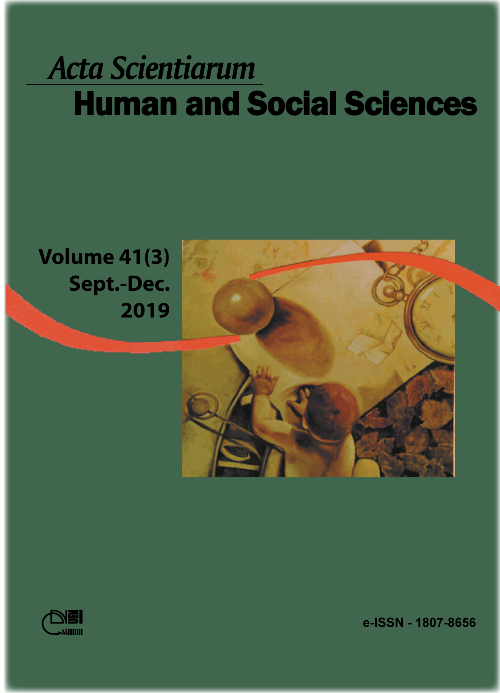Mario Quintana: mistério, sonho e puerilidade no espaço moderno
Resumo
Este artigo, além de brevemente contextualizar o movimento artístico do simbolismo brasileiro em relação à estética modernista nacional, que teve início em meados dos anos de 1890, sendo motivado por referenciais oníricos e metafóricos opostos à escola realista anterior, tem por objetivo analisar a linguagem poética do escritor gaúcho Mário Quintana na sua caracterização simbolista do cotidiano, norteada por uma temática de mistério, sonho e puerilidade, bem como na representação das cidades de Porto Alegre, que é a capital do estado do Rio Grande do Sul, no Brasil, e Londres, que é a capital da Inglaterra, no que tange ao sentimento de pertença, à observação da mudança e ao discurso laudatório. Este estudo entretece sua argumentação por meio das teorias da literatura e da arte cujo arcabouço teórico se dá por meio de autores como Arendt e Pavani (2006), Baudelaire (2006), Fonseca (2014), Pesavento (1994), Schüler (1987), Trevisan (2006), dentre outros. A representação citadina do antigo e do moderno nos poemas demonstra que Mário Quintana apresenta mais referenciais do simbólico em suas primeiras obras do que nas últimas publicações, que contém versos mais livres e uma linguagem menos rígida. Na produção modernista desse escritor, as obras possuem temas mais nacionalistas e de tom de exaltação local, todavia, mantem-se pela simplicidade na linguagem.
Downloads
DECLARAÇÃO DE ORIGINALIDADE E DIREITOS AUTORAIS
Declaro que o presente artigo é original, não tendo sido submetido à publicação em qualquer outro periódico nacional ou internacional, quer seja em parte ou em sua totalidade.
Os direitos autorais pertencem exclusivamente aos autores. Os direitos de licenciamento utilizados pelo periódico é a licença Creative Commons Attribution 4.0 (CC BY 4.0): são permitidos o acompartilhamento (cópia e distribuição do material em qualqer meio ou formato) e adaptação (remix, transformação e criação de material a partir do conteúdo assim licenciado para quaisquer fins, inclusive comerciais.
Recomenda-se a leitura desse link para maiores informações sobre o tema: fornecimento de créditos e referências de forma correta, entre outros detalhes cruciais para uso adequado do material licenciado.


























